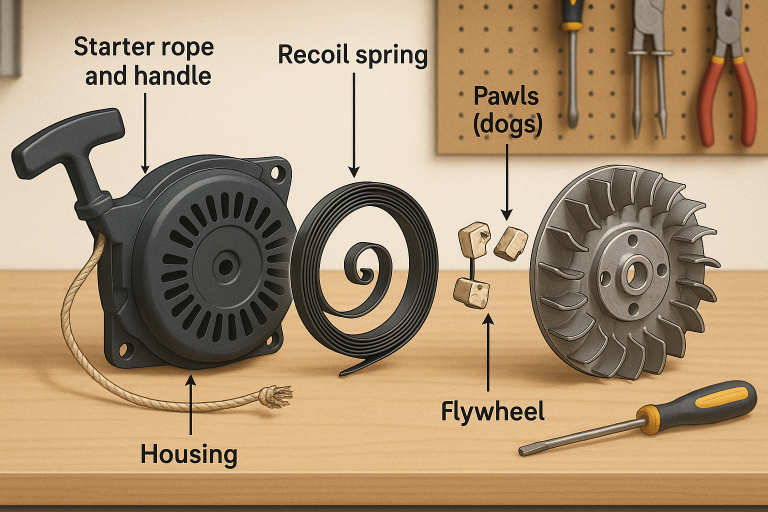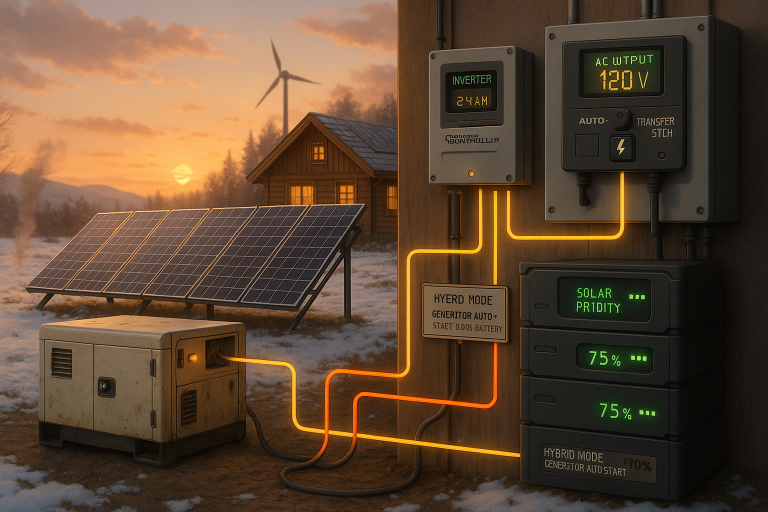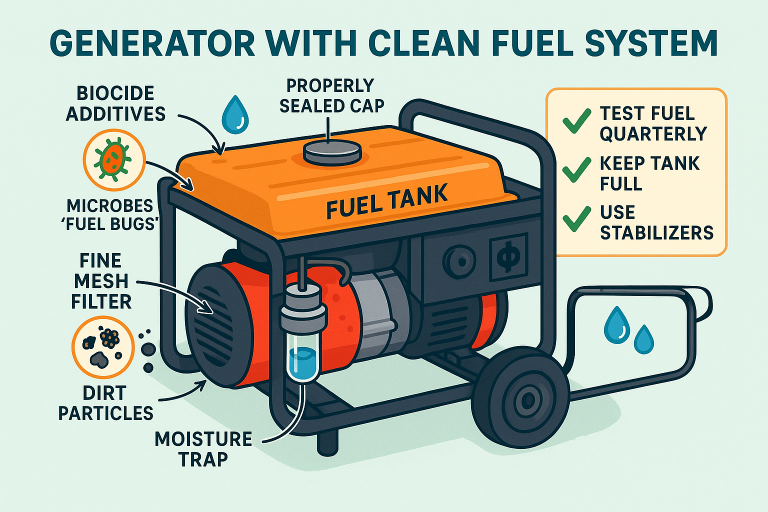How to Calculate Which Generator is Right for your Needs?
When it comes to finding the right generator for your needs, there are several factors to consider. It can be overwhelming to sift through the many different models and brands available, but by taking the time to calculate your power needs and considering other key factors, you can ensure that you select the generator that best meets your requirements.
Determine Your Power Output Needs
The first step in selecting the right generator is determining the total power output, measured in watts (W), that you will need to run all of your equipment or devices. To do this, you will need to know the power consumption of each device or piece of equipment in watts. This information can usually be found on the label or in the user manual. If it’s not specified, you can look up the specifications online or contact the manufacturer.
For example, if you need to power a few lights, a refrigerator, and a small air conditioner, you might need a generator with a power output of around 4,000 watts. However, if you need to power larger appliances like a central air conditioning unit or an electric range, you might need a generator with a power output of 10,000 watts or more.
Once you have the power consumption of each device or piece of equipment, add them all together to find the total power output you will need from the generator. This is known as the “peak load”.
Consider Surge or Starting Capacity
In addition to the peak load, you will also want to make sure that the generator you choose has a “surge” or “starting” capacity that is at least 2-3 times higher than your peak load, to account for any sudden power spikes.
For example, if your peak load is 4,000 watts, you should look for a generator with a surge or starting capacity of at least 8,000 watts. This will ensure that the generator can handle any sudden power spikes that might occur when starting large appliances like an air conditioning unit or an electric range.
Fuel Type
Another factor to consider when selecting a generator is the fuel type. Some generators run on gasoline, while others run on propane or diesel. Consider which fuel type is most convenient for you to use and store.
Gasoline generators are generally the most widely available and are usually the most affordable, but they can be less convenient to store and transport. Propane generators, on the other hand, can be more expensive but they are more stable and long-lasting than gasoline and often easy to store. Diesel generators are more expensive than gasoline generators but they are more fuel-efficient and have a longer lifespan.
Portability
If you need to move the generator around, consider one that has wheels and a handle for easy movement. This will make it much easier to move the generator from one location to another, whether you’re using it at a construction site, a camping trip, or during a power outage.
Noise Level
Some generators are louder than others. If you need to use the generator in a residential area or somewhere noise is a concern, you may want to consider one that is designed to operate quietly. Look for generators that have a low noise level, typically measured in decibels (dB), and pick one with a noise level of 60dB or lower for a quiet operation.
Price and Brand Reputation
There are many different brands and models of generators available, so be sure to shop around to find the one that best meets your needs at a price you can afford. Also, consider the brand reputation. Look for well-established brands that have a good reputation for quality and customer service.
Professional Consultation
It’s also important to note that if you are going to use the generator for critical applications such as powering medical equipment, backup power for data centers, or in emergency situations, you should consult with a professional to ensure that you are selecting the right generator for your needs. A professional can help you to determine the specific power output, surge capacity, and other technical requirements that your particular application requires, as well as provide guidance on the best models and brands that are available to meet those requirements.
| Factor | Description |
|---|---|
| Power output | The generator should be able to provide enough power to run all the equipment or devices you need to use. It is measured in watts (W) |
| Fuel type | Some generators run on gasoline, while others run on propane or diesel. Consider which fuel type is most convenient for you to use and store. |
| Surge or Starting Capacity | The generator should have a “surge” or “starting” capacity that is at least 2-3 times higher than your peak load, to account for any sudden power spikes. |
| Portability | If you need to move the generator around, consider one that has wheels and a handle for easy movement. |
| Noise level | Some generators are louder than others. Consider one that is designed to operate quietly, typically measured in decibels (dB), and pick one with a noise level of 60dB or lower for a quiet operation. |
| Price and Brand Reputation | There are many different brands and models of generators available, so be sure to shop around to find the one that best meets your needs at a price you can afford. Also, consider the brand reputation. Look for well-established brands that have a good reputation for quality and customer service. |
| Professional Consultation | If you are going to use the generator for critical applications such as powering medical equipment, backup power for data centers, or in emergency situations, you should consult with a professional to ensure that you are selecting the right generator for your needs. |
In conclusion, finding the right generator for your needs can be a complex process but by determining your power output needs, considering surge or starting capacity, fuel type, portability, noise level, price, brand reputation and consulting with a professional, you can ensure that you select the generator that best meets your requirements.



